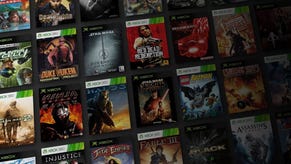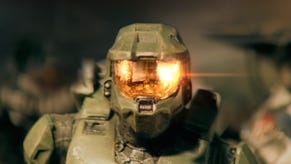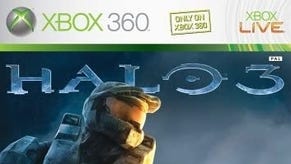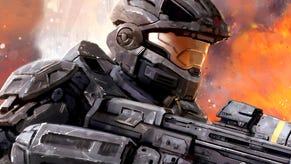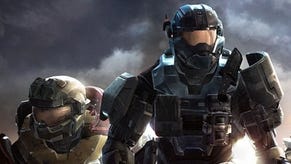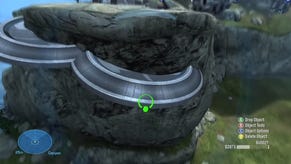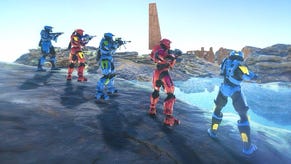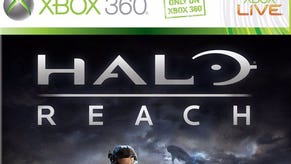Halo: Reach
The long goodbye.
"Remember Reach." The marketing slogan for Microsoft's latest sci-fi blockbuster is so very Halo. Portentous, epic and heavy with martial sentimentality, it also has a slightly overconfident belief in the resonance of the fiction behind these excellent shooters.
Reach, it is assumed you'll know (and care), is the name of the planet where humanity's war with the Covenant - in full swing by the time Master Chief's adventures began in Halo: Combat Evolved - started. Reach was invaded and catastrophically wiped out by the zealous aliens in their search for the artefacts of a lost civilisation. This genocide and the doomed struggle to stop it are the events portrayed by this, Bungie's fifth Halo game (and its mawkish advertising).
Reach is also what people will call this game, though, and that slogan sounds as though it's inviting you to venerate it before the fact. After Halo 3: ODST's flat stop-gap, Bungie and Microsoft are fervently willing this game to be a classic, and its position as a prequel and as Bungie's last Halo has infected both publisher and developer with a kind of backwards nostalgia for a brand new game. Remember Reach; this is where it all began; this is the game we were always trying to make; this is a monument to Halo's greatness. Gaze on it and be humbled, and think of the non-existent millions who died to bring it to you.
Among ODST's sins was that it never really felt like an event. That certainly isn't an accusation you can level at Reach, even if the heart-string-tugging hype is wearing thin. And in no way can you begrudge Bungie the desire to bow out at the top of its game. But it sets an intimidating bar. Can Reach really be the best Halo yet?
Pound for pound, feature for feature, in terms as objective and coldly analytical as possible - it's certainly close. But in your heart, you know that it isn't, and it couldn't ever be.
That's not to say that it isn't as complete a package as the series has seen, produced to a scale and specification easily comparable with the mighty Halo 3. In fact, the multiplayer is enhanced by the addition of ODST's Horde-alike, Firefight, as well as vastly improved matchmaking. The campaign, meanwhile, is a solid 10 hours of seismic spectacle that rarely puts a foot wrong in its pacing or design.
Feeling, perhaps, that Master Chief's iconic boots were impossible to fill, Bungie has neatly dodged the issue by making the player not merely faceless but nameless, a customisable cypher attached to the Noble squad. The limelight is thus widened to take in your team-mates, an inoffensive bunch of soldierly clichés; noble commander, stolid heavy, silent sniper, spiky tomboy and street-talking scrapper.
Aiming for both the human frailty of ODST's marines and Master Chief's towering, monosyllabic super-heroism - and consequently achieving neither - these bland characters never find the place in your heart they're supposed to. As a result, Bungie's predictable lunges at camaraderie and pathos fall wide of the mark, and all you're left with is a lot of po-faced exposition between the explosions.
One of Reach's few faults is to take its story too seriously. Bungie has occasionally been guilty of forgetting, George Lucas-style, that it was making pure pulp, but the endearing cartoonishness of Chief, Cortana, Sergeant Johnson and company kept the brush-strokes broad in the past. Somehow, their comic-book adventures were more stirring than this terribly earnest requiem for the soldiers and victims of a war against purple space-aliens. It left me cold.

